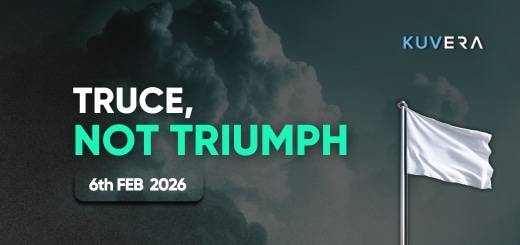
tl;dr Hear the article in brief instead?
Until a few years ago every time the state-owned oil marketing companies such as Indian Oil and Bharat Petroleum—essentially, the government itself—announced a fuel price hike, car and bike owners would line up at their nearest petrol pump to fill up their tanks before the new rates came into force, which was typically at midnight. This would lead to overcrowding at the pumps and even chaos at some places, and newspaper headlines with photos the following day.
Now, people who stood in those queues did so to save some money. And people who didn’t stand in those queues wondered about people who did. After all, how much money would they really save!
A bike rider, for instance, might have managed to save Rs 30-40 assuming the price hike of Rs 3-4 per litre and a tank of 10-12 litres. A car owner might have saved a princely sum of Rs 200-300, considering cars typically have a tank of 40-50 litres. And this doesn’t even take into account the extra effort and time required to stand in those queues.
But it’s not the amount saved that’s the main point here, although the money however little may really matter to those struggling to make ends meet. The bigger point is that often a hike in prices of anything that’s critical to our life—food or petrol or something else—can evoke an emotional reaction among people. At least in some people anyway.
This is not an aberration in any sense and is a perfectly normal response. And the middle-class people riding scooters or driving cars aren’t the only ones that may respond in such a manner—even some of the biggest and richest multinational corporations sometimes act this way. Don’t believe us? Here’s the proof.
Apple Inc., the world’s biggest company by market value, brought iPhones worth almost $2 billion from India to the US in March to avoid the tariffs President Donald Trump announced this month. According to a Reuters report, Apple’s India suppliers Foxconn and Tata Electronics ramped up production last month and Apple then chartered cargo flights to take about 1.5 million iPhone 13, 14, 15, 16 and 16e models from Chennai to Chicago, New York and Los Angeles. Apple even lobbied authorities to reduce the time required to clear customs at the Chennai airport from 30 hours to six hours.
Now, consider this. Apple’s market value is a tad below $3 trillion—that’s two-thirds of India’s GDP! Its revenue for the year through September 2024 was $391 billion and net profit was almost $94 billion. It sold iPhones worth $201 billion during the year. That’s more than double the combined sales of Mac computers, iPad tablets, and other products.
To be sure, Apple has been moving some iPhone production to India from China. According to a Bloomberg report, the company assembled phones worth almost $22 billion in India during 2024-25, up almost 60% from the previous year. But how much money the world’s biggest smartphone maker saved by importing iPhones worth $2 billion?
Trump imposed a “reciprocal” tariff of 26% on imports from India in early April and more than 100% on shipments coming from China.
However, barely a week later Trump paused “reciprocal” duties on all countries except China for three months. Then, he exempted smartphones, computers and some other electronics imported from China from all tariffs. He even excluded these products from the “baseline” tariffs on goods from most countries other than China.
So, let’s ask again. How much money did Apple save? Probably nothing much. But that’s not the point, you see!
Trade Talk
Talking about imports and exports, India’s merchandise trade deficit surged to a new high of $282.82 billion in 2024-25, marking a sharp 17.3% increase from the previous year. The widening gap was largely driven by a forgettable export growth of just 0.1% while imports climbed a significant 6.2%. Notably, this deficit escalated even before the reciprocal tariffs came into effect.
A substantial portion—over a third—of this deficit was attributed to trade with China. India’s trade gap with its northern neighbour soared to a record $99.2 billion, marking the highest annual deficit India has ever registered with any country. Concerningly, exports to China shrank 14.5%, standing at just $14.2 billion, while imports rose sharply by 11.5%, reaching $113.4 billion.
The scenario may worsen in coming months, as China could potentially flood the Indian market with goods diverted due to its ongoing tariff conflict with the US. This is despite sustained efforts to shift manufacturing from China to India, particularly in sectors like smartphones and semiconductors. One hypothesis for the persistent deficit is India’s continued reliance on Chinese imports for critical manufacturing components.
While this dependence might eventually help India establish a stronger domestic supply chain, achieving this isn’t straightforward. Reports have surfaced indicating China has restricted exports of heavy machinery critical to manufacturing advanced components, especially in the wake of heightened tensions with the US.
Meanwhile, trade with the US remains robust. America retained its position as India’s top trading partner for the fourth consecutive year. India exported goods worth $86.5 billion to the US, resulting in a healthy surplus of $41.2 billion. This favourable balance explains India’s cautious and calculated response to Trump’s reciprocal tariffs—contrasting sharply with China’s aggressive retaliatory measures.
Inflation Watch
While India’s widening trade deficit is a matter of worry, there is some good news, too, on the macroeconomic front. Government data showed retail inflation eased to 3.34% in March, staying below the Reserve Bank of India’s medium-term target of 4% for the second consecutive month. Significantly, this is the lowest inflation level in nearly six years.
The decline was largely driven by a fall in food prices. Vegetable prices dropped 5.69% from February while eggs fell by 4.95% and pulses by 2.92%. As a result, retail food inflation cooled to 2.69% in March, down from 3.75% in February. However, a 3.15% rise in fruit prices limited the decline in food inflation.
Adding to the positive trend, wholesale inflation eased to a six-month low of 2.05% in March. To be sure, the composition of items and their weights differ between wholesale and retail inflation. Moreover, wholesale prices tend to influence retail inflation with a slight lag—especially in non-food categories. But that’s where there is a slight hitch.
Retail core inflation, which excludes food and fuel, edged up to 4.1% in March from 4.0% in February. The RBI’s measures typically affect core inflation, even though its mandate is to target the headline number.
The continued decline in headline inflation has strengthened the case for the RBI to cut policy rates for the third consecutive time at its next monetary policy meeting, scheduled for June 5-7. The central bank cut rates by 25 basis points each in February and again earlier this month. It has also shifted its stance to ‘accommodative’, signalling further rate cuts ahead.
As we noted in our last newsletter, this trend bodes well for borrowers and EMI payers, but for those planning to invest in fixed deposits, now is the time to lock in existing rates before they drop further.
The Rotten Apple
Over the past few months, we have written about several instances of stock market manipulation, fraud and other such cases that the Securities and Exchange Board of India unearthed and took action. The return of Ketan Parekh, for instance, in January and about Asmita Patel, LS Industries and Brightcom in February. This week, SEBI cracked down on another company, Gensol Engineering Ltd, and its promoters.
The regulator barred brothers Anmol and Puneet Singh Jaggi, the promoters of Gensol, from operating in the securities market and holding any positions in the company as it probed diversion of funds and defaults on debt repayments. In an interim order, SEBI also barred Gensol from conducting a 1:10 stock split approved last week.
Now, we can’t get into all the details of the 29-page order, but here’s a quick summary. SEBI investigated Gensol after credit rating agencies downgraded their ratings due to corporate governance concerns and after a related company, BluSmart, defaulted on its debt. Gensol had denied the defaults last month but SEBI’s probe found quite the opposite.
The SEBI order noted that Gensol availed loans worth Rs 978 crore from state-owned lenders Indian Renewable Energy Development Agency (IREDA) and Power Finance Corporation to buy electrics cars that were leased to BluSmart, which was also founded by the Jaggi brothers. But Gensol didn’t use all that money to buy cars.
Instead, the brothers diverted some of the money through multiple related companies and several transactions to buy an apartment in DLF’s ultra-luxury project The Camellias in Gurgaon, purchase an expensive golf set, trade in shares of Gensol, invest in other stocks and startups, travel, buy jewellery and, basically, live a lavish life.
“The promoters were running a listed public company as if it were a propriety firm,” SEBI said. “The company’s funds were routed to related parties and used for unconnected expenses, as if the company’s funds were promoters’ piggybank.”
SEBI also noted that the promoters’ stake in Gensol, which listed on the SME exchanges in 2019 and shifted to the main board in 2023, has been falling while those of retail investors has been rising. The company had more than 1 lakh retail investors at the end of December. Meanwhile, its stock price has plunged, too. From a high of Rs 1,125.75 in June last year, the stock has crashed nearly 90%, leaving thousands of investors in the lurch.
Meanwhile, BluSmart—which once aspired to rival Ola and Uber but with the cleaner EVs—has now suspended operations. That leaves its own investors, which included many wealthy individuals as well as foreign firms including an investment arm of British energy giant BP, in the dark.
So, as we have pointed out before, be careful while investing in stocks. Especially those that rise too fast, too soon.
Market Wrap
The stock markets bounced back strongly this week after two weeks of losses on uncertainties over US tariffs.
Both the Nifty 50 and the BSE Sensex rallied nearly 4.5% in the holiday-shortened week—the markets were closed for Mahavir Jayanti on Monday and for Good Friday. This was the best week for the indexes in over four years and helped them erase all their year-to-date losses. The benchmarks are now down only 9% from their peaks in September 2024.
None of the 50 Nifty stocks ended in the red this week. The rally was led by financial stocks after a cut in deposit rates by banks boosted the prospects of wider net interest margins.
ICICI Bank jumped 7.2% this week while HDFC Bank climbed 5.5%. Axis Bank surged 11.3% and IndusInd Bank soared more than 15%. Non-bank lenders Jio Financial and Shriram Finance were also among the top performers.
The biggest gainers among non-financial stocks were Adani Ports, Trent, ONGC, Bharti Airtel, Zomato parent Eternal, and SBI Life Insurance. Tech stocks remained under pressure on worries about a possible economic slowdown in the US, their biggest market. Wipro ended flat after reporting tepid earnings for the fourth quarter. Infosys and TCS rose less than 2% each. FMCG giant Hindustan Unilever and automaker Maruti Suzuki were among others at the bottom of the list.
Other Headlines
- Infosys Q4 revenue rises 7.9% to Rs 40,925 crore, misses analyst estimates
- Wipro Q4 revenue up 1.3% at Rs 22,504 crore, lags estimates; expects sequential decline in April-June revenue
- India Meteorological Department predicts above-average monsoon rains in 2025
- Paytm founder Vijay Shekhar Sharma foregoes 21 million ESOPs after SEBI notice
- Gitanjali Gems’ Mehul Choksi, accused in $2 billion PNB fraud case, arrested in Belgium
- ICICI Lombard General Insurance misses forecasts as Q4 profit drops 2% to Rs 510 crore on higher claims
- ICICI Prudential Life Insurance Q4 profit more than doubles to Rs 386 crore
- IndusInd Bank estimates 2.27% hit to net worth after external probe finds accounting discrepancies
- HDFC Bank, ICICI Bank cut interest rates on savings accounts
- Car, SUV sales to dealers grew 2% in 2024-25 to 43 lakh units, says industry body SIAM
- SEBI chief Tuhin Kanta Pandey says to review ESG disclosures for listed companies, reports Reuters
That’s all for this week. Until next week, happy investing.
Interested in how we think about the markets?
Read more: Zen And The Art Of Investing
Watch here: Investing in International Markets
Start investing through a platform that brings goal planning and investing to your fingertips. Visit kuvera.in to discover Direct Plans and Fixed Deposits and start investing today. #MutualFundSahiHai #KuveraSabseSahiHai












